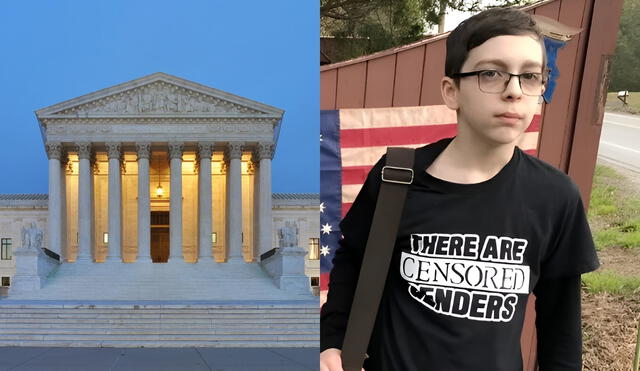Supreme Court declines to review free speech case involving Student's 'Two Genders' Shirt
A middle schooler's t-shirt sparked a national firestorm. Now, with the Supreme Court staying silent and a major transgender rights case on the horizon, the battle over free speech and identity in America's classrooms is far from over.

The United States Supreme Court opted not to hear the matter of Liam Morrison, a Massachusetts middle school student who was punished for wearing a shirt that said “There are only two genders.” Morrison was 12 years old in March 2023, when he was sent home from John T. Nichols Middle School after complaints that his shirt offended other students. His family argued that this was a violation of his First Amendment rights of free speech.
Morrison returned to the school wearing a modified shirt that said “There are [censored] genders,” but, that shirt was prohibited as well. Lower courts, including the First Circuit Court of Appeals, upheld the school’s decision stating that they had concern about how his shirt had impacted transgender and nonbinary students and issues pertaining to disruption in the educational environment.

ALSO SEE: China challenges U.S. Military dominance with massive Troop buildup and nuclear advancements
Supreme Court rejects case, sparking free speech concerns in Schools
By refusing to hear the case, the Supreme Court upheld the decision by the appellate court. However, Justices Samuel Alito and Clarence Thomas dissented, stating their dissent sent a clear message that suppressing speech based on viewpoint is a dangerous precedent to set, and that the uncertainty around protections for democratic process-style free speech could be problematic for students. Alito went so far as to suggest that permitting schools to silence offensive views could ultimately undermine the First Amendment for all.
The case relied on precedent established in Tinker v. Des Moines (1969), which establishes that schools can regulate student speech to limit substantial disruption. The courts determined that Morrison’s shirt provoked potential and "poison[ed] the educational environment" and therefore justified the restriction by the school as appropriate for managing the mental health and well-being of LGBTQ+ students.
Free speech debate grows as Supreme Court awaits ruling on transgender rights case
Morrison's family, represented by the conservative law group Alliance Defending Freedom, argued in their lawsuit that the school treated them differently because it tolerated pro-transgender messages yet punished their anti-trans speech. Now this case has spurred a national debate about free speech in schools and the rights of gender diverse students.
Although the justices did not rule on Morrison's case, they are expected to soon rule on a related case regarding a Tennessee law impacting transgender rights. That ruling may clarify how to mediate freedom of speech with protections for discrimination in American schools.












